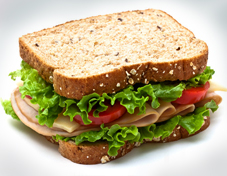Food plays a bigger role at funerals than most people realise. It’s not just about feeding those who attend. It’s about comfort. It’s about bringing people together when everything feels like it’s falling apart. Whether it’s tea and sandwiches after a memorial or a full sit-down meal with family and neighbours, food helps fill the quiet, awkward space that follows loss.
Meals give people something to do with their hands when they don’t know what to say. Sharing a plate often feels easier than sharing emotions. That’s why funeral catering isn’t just a side detail. It’s part of the process. It’s part of how we grieve, and part of how we begin to move forward.
The Emotional Impact of Shared Meals

There’s something grounding about food after a funeral. It slows things down. People sit. They eat. They talk. Not always about the person who passed — sometimes they talk about the weather or sport or anything but the sadness hanging in the air. And that’s okay. Those small moments matter.
When you feed people after a funeral, you’re not just giving them calories. You’re giving them space. You’re saying, “It’s alright to sit here. You’re not alone.” That’s why funeral catering needs to be done right — not with fanfare or fuss, but with care. A warm plate of food in someone’s hand can feel like a quiet kind of support that words can’t always manage.
Cultural Traditions and Their Influence on Funeral Catering
In South Africa, cultural traditions shape everything — and funerals are no different. Some communities serve pap and stew. Others offer sweet tea and soft bread rolls. For many, it’s about showing respect by feeding those who come to pay their respects. In some cultures, it’s expected that no one leaves hungry. The food itself might not be fancy, but it’s important.
Each region, religion and family has its own customs. Some serve food before the burial. Some wait until afterwards. Others have multiple days of meals. You’ll also find symbolic dishes — things like dumplings, sweet porridge, or even favourite snacks of the person who has passed. Knowing these customs helps you serve meals that aren’t just practical but meaningful.
Common South African Funeral Foods and Their Significance
Across the country, there are certain dishes you’ll almost always find at a funeral. Some are chosen because they’re affordable and can feed many people. Others are there because they carry deeper meaning. A few staples include:
- Pap and meat stew – filling and easy to make in bulk.
- Rice with gravy – comforting and soft, easy for all ages.
- Chicken pieces or chops – a touch of variety.
- Pumpkin or beetroot salad – brightens the plate.
- Bread rolls and butter – practical and quick.
- Tea, coffee, and cold drinks – keeps people refreshed.
These aren’t just food choices. They’re part of what people expect. When guests see a familiar plate, they feel looked after. They know they’re part of something — a community gathering, not just a sad occasion.
Planning a Funeral Menu: Factors to Consider
There’s a lot to think about when planning food for a funeral. It’s not like a wedding or a birthday where everyone’s excited. People are tired. They’ve likely travelled far. Some might have fasted or skipped breakfast. So the food needs to hit the right notes — warm, comforting, not too spicy, and not too rich.
You also have to think about numbers. Funeral attendance can be hard to predict. People may come from all over, especially if the person was well known or part of a large family. Plan for more rather than less. Leftovers can be shared with family members or neighbours.
Timing matters too. Will food be served before or after the ceremony? Will people be hungry after sitting in traffic or attending a long service? Planning around these details helps things go more smoothly.
Balancing Tradition and Personal Preferences
It’s always good to respect cultural expectations, but personal touches matter too. Think about what the person liked. Did they have a favourite dish? Maybe they always made a certain dessert for family gatherings. Including that one dish can bring a smile to someone’s face at just the right moment.
You don’t have to serve the same menu every time. Some families prefer something light and simple. Others want a full meal that will last for hours. It depends on who’s attending, how long the day will be, and what people can afford. There’s space for both tradition and personal touches.
Dietary Restrictions and Inclusive Options
Not everyone can eat everything. Some guests might be vegetarian. Others may have health conditions that limit what they eat. You don’t have to cater for every possible diet, but it helps to have a few flexible options. A vegetable stew. A plain rice dish. Fruit for dessert. These small choices can make a big difference to someone who would otherwise go hungry or feel left out.
If you’re expecting elders, consider softer food. If children are attending, try to include something familiar like vetkoek or mild chicken pieces. Thoughtfulness in this area doesn’t go unnoticed.
Logistics and Timing: Coordinating Meal Preparation and Service
Serving food at a funeral comes with its own timing issues. Some families prepare food the night before. Others cook from early morning. You need people to help — not just to cook, but to transport, heat, serve, and clean. The bigger the event, the more hands you need.
Make sure there’s enough seating or at least some sheltered space. People may eat on their laps, but it helps to have tables for elders. Serving in shifts or keeping food warm in pots and chafing dishes helps when things run late. Having a plan matters more than having a fancy meal.
The Importance of Presentation and Serving Style
Even at funerals, the way food looks and is served makes a difference. You don’t need tablecloths and place settings, but clean plates, fresh spoons, and neat serving areas help set a respectful tone. People notice when things are done properly. It shows care.
Serving food in a calm, organised way helps keep the mood peaceful. If there’s one long queue and not enough food, tensions rise. If everything flows smoothly, people eat, talk, and leave with a bit more peace than they arrived with. That’s what matters.
Choosing Between Professional Caterers and Community Support
There’s no right answer here. Some families have the budget and prefer to bring in caterers. Others rely on relatives, neighbours, or church groups to cook and serve. Both ways work — what matters is that the food gets there, and people are fed.
What professional caterers offer is less stress. You don’t have to worry about pots boiling over or whether there’s enough salt. But you do pay for that peace of mind. Community cooking, on the other hand, brings a different kind of comfort. It’s about people coming together to help during a hard time. Both options have their place.
Benefits of Hiring Professional Funeral Caterers
When you hire professionals, you get consistency. The food arrives on time, hot and ready. The menu is usually agreed upon beforehand. They bring their own serving gear. Sometimes they even clean up. This helps families focus on the ceremony, not the kitchen.
If the funeral is large or involves multiple locations, catering can make a big difference. It reduces stress, helps with portion control, and keeps things neat. You don’t have to worry about running out of plates or having the wrong kind of drinks. It’s one less thing to think about when your mind is already full.
When Community and Family Come Together to Provide Meals
There’s something powerful about seeing aunties and neighbours peeling vegetables together. It brings a kind of closeness that money can’t buy. Cooking for a funeral isn’t just about feeding people. It’s about honouring someone’s memory through service. For many, it’s the most natural way to help.
Of course, this also means someone has to organise things. Who’s bringing what? Where will it be cooked? Do we have enough pots? These things need clear communication. But when it works, it works well. The food might not be perfect, but it’s made with love — and that’s something people feel.
Budgeting for Funeral Catering
Food can be expensive, especially when you’re feeding a lot of people. Start with a number. How many people are likely to attend? Multiply that by an average plate cost. From there, look at your total. Can you afford it? If not, where can you scale back?
Some families ask for donations. Others chip in with money, ingredients, or help. Whatever the situation, be honest about what’s possible. It’s better to serve a smaller meal well than stretch beyond your means and end up stressed.
Cost-Saving Tips Without Compromising Quality
Stick to basics that stretch. Rice, pap, and chicken are all forgiving. Avoid too many side dishes. Keep the drinks simple — tea, coffee, and cordial go a long way. Don’t worry about desserts unless there’s room in the budget.
Instead of serving people individually, consider a buffet-style setup. People take what they need, and you waste less. Leftovers can go to family or be shared with helpers. It’s about balance — not cutting corners, but being practical.
Allocating Resources Effectively
Funerals often come with many hidden costs. Transport, printing, chairs, the venue. Catering is just one piece of the puzzle. Think of your food budget as part of the whole. If you’ve got R10,000 to spend, how much can go to food? R3,000? R5,000?
From there, work backwards. What meals fit into that range? Can you make some things yourself and buy others ready-made? Be realistic. Keep receipts. Track what’s been paid and what’s still owed. This helps keep everything clear.
The Role of Comfort Foods in Healing
Comfort food isn’t just a phrase — it’s real. It taps into memory. It tells the body, “You’re safe.” That’s why certain dishes hit differently after a funeral. A slice of warm bread. A spoon of soft porridge. A familiar stew. These aren’t just meals — they’re moments that help hold people up.
Serving the foods people grew up with creates a quiet bridge between grief and calm. It doesn’t fix anything. But it softens the day.
How Familiar Dishes Provide Emotional Support
Think about when someone is in pain. You can’t always say the right thing. But you can give them something warm to eat. A plate of food might not change the loss, but it changes the mood. For that hour, people aren’t crying. They’re eating. They’re sharing a story. They’re remembering.
This is the kind of support that sticks. People remember the meal at a funeral not because it was fancy — but because it gave them a moment of peace when they needed it most.
Incorporating Personal Favourites of the Deceased
Sometimes, one small dish makes a big difference. Maybe it was their favourite pudding. Maybe it was the way they always made their eggs. Adding one of these to the menu is a quiet nod — a small moment that says, “We remember you.”
You don’t need to overdo it. One dish. One flavour. That’s enough. These things carry meaning, especially when shared by those who knew the person well. It’s one more way of saying goodbye, without needing to speak.
Feedback and Continuous Improvement
Even with something as sensitive as a funeral, it helps to learn. What went well? What didn’t? Was there enough food? Was it served on time? Was anything missing? Ask quietly. Ask gently. But ask — because next time, the load might be yours again, or you might be helping someone else.
Better planning comes from experience. And good food served well is always remembered.
Gathering Input from Attendees for Future Planning
You don’t need formal surveys. Just pay attention. Did people finish their plates? Did they go back for seconds? Did they ask who made the stew or compliment the tea? These small clues tell you what worked. Next time, you’ll know.
Funerals are hard. But they’re also full of small acts of care. Feeding someone well in that moment is one of the strongest ways to show love. And that’s what funeral catering is all about.




Leave a Reply